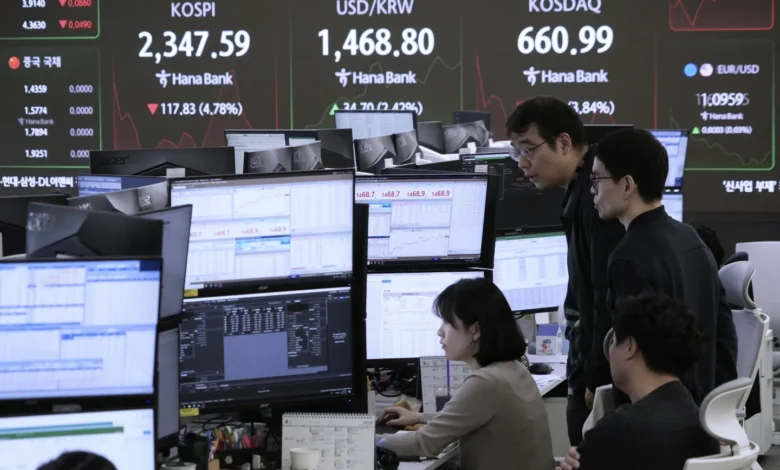Global Markets Plunge as China Accuses U.S. of Economic Bullying Over New Tariffs
Global stock markets tumbled sharply on Monday following escalating trade tensions between the United States and China, as Beijing accused Washington of “economic bullying” after the implementation of new U.S. tariffs on Chinese goods. The market fallout underscores growing investor anxiety over the intensifying dispute between the world’s two largest economies.
Major indices across Asia, Europe, and North America saw steep losses as investors reacted to the latest round of U.S. tariffs and the increasingly aggressive rhetoric coming from both sides. The Dow Jones Industrial Average dropped over 500 points in early trading, while the S&P 500 and Nasdaq also recorded significant declines. Asian markets were hit particularly hard, with the Shanghai Composite falling nearly 3% and the Hang Seng Index shedding over 2.5%.
China’s Foreign Ministry issued a stern statement accusing the United States of undermining global trade norms and deliberately provoking economic instability. “The U.S. is resorting to unilateralism and protectionist measures, which amount to economic bullying,” a ministry spokesperson said. “China will not hesitate to take all necessary countermeasures to protect its national interests.”
The new tariffs, which target tens of billions of dollars in Chinese imports, are the latest in a series of trade actions imposed by the Biden administration in an attempt to pressure Beijing over intellectual property concerns, trade imbalances, and state subsidies. While the White House argues that the measures are necessary to ensure fair competition, China views them as a strategic threat and a violation of World Trade Organization (WTO) principles.
Investors fear that the escalating trade war could derail global economic growth, disrupt supply chains, and trigger inflationary pressures worldwide. Markets responded with a flight to safety, with gold prices spiking and bond yields falling as traders sought refuge in traditionally stable assets.
“The markets are clearly reacting to rising geopolitical risk,” said a senior economist at Global Financial Strategies. “If this tit-for-tat continues, we could see prolonged volatility and a real impact on global GDP.”
In addition to financial markets, global corporations with significant exposure to China—particularly in the tech, manufacturing, and automotive sectors—saw their shares take a hit. Multinational firms now face heightened uncertainty, with many warning of potential price hikes, supply shortages, and shrinking profit margins.
Economists are calling for de-escalation and renewed dialogue between Washington and Beijing to prevent further damage to the global economy. However, with both governments doubling down on their respective positions, a quick resolution appears unlikely.
As the tariff conflict deepens, global markets are expected to remain on edge, with investors closely watching for signs of further retaliation or a potential diplomatic breakthrough.
Source : Swifteradio.com


